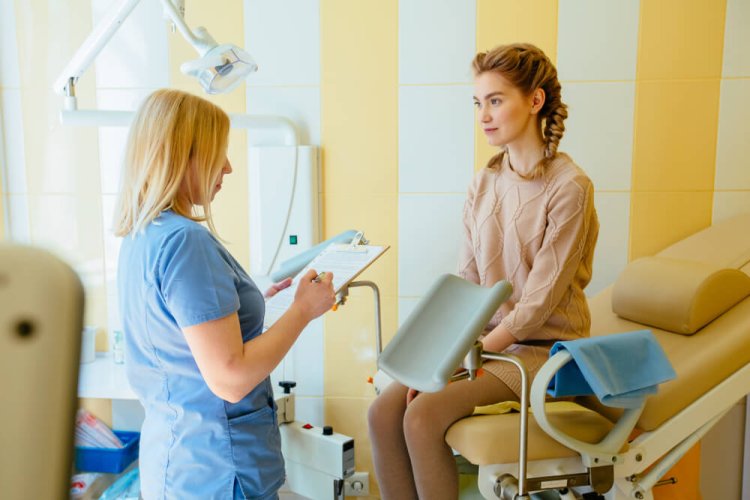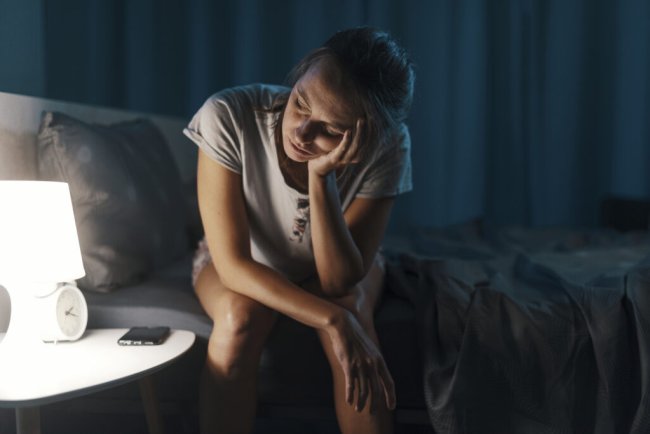When should you visit the Gynecologist according to your age
There are still taboos regarding women's health, gynecological diseases, or menstruation, although in Spain women represent more than half of the total population. Let's analyze the questions with the help of an expert to know the truth.

There are still taboos regarding women's health, gynecological diseases, or menstruation, although in Spain women represent more than half of the total population. Let's analyze the questions with the help of an expert to know the truth.
The basic right to health is an element that is achieved by becoming aware of the importance of the female gender and putting aside the "collective blindness" that has surrounded us until the end of the last century. The percentage of the female population in Spain is 50.7% this year, according to data from the INE, however, there continues to be popular misinformation about the issues that affect their mental and physical health, a clear example is the frequency with which You should visit the gynecologist.
Gynecologist Mariana Panel from the Bmum center, who specializes in the comprehensive care of children and women at different stages of her life, helps us with this answer, in addition to clarifying some other issues that arise during the review.
What is the ideal age to visit the gynecologist for the first time?
Dr. Panal clarifies that there is no consensus on the best time for women to begin their visits to the specialist, however, she emphasizes that "within gynecological check-ups, screening is performed for early detection of cervical cancer." (cytology and human papillomavirus test) and screening for early detection of breast cancer ", emphasizing in this regard that "a gynecological examination can also help women and adolescents improve their health even if they are not required to perform screening or primary detection of gynecological cancer."
When reviewing data and sources from each country, it can be seen that the recommendation for a first gynecological consultation is given at different ages. "The American College of Obstetricians and Gynecologists (ACOG) recommends a visit for adolescents between 13-15 years of age as a first contact and subsequently starting regular check-ups for periodic screening for cervical cancer between 20-25 years of age, since start breast cancer screening from the age of 40," explains the expert, adding: "The United Kingdom's National Health Service recommends that cervical cancer screening begin at age 21 and the Finnish Cancer Organization "recommends starting it at age 30."
And the recommended age in Spain? The Spanish Society of Gynecology and Obstetrics recommends starting periodic check-ups with the gynecologist when sexual relations begin. In this regard, the doctor adds: "The Spanish Association of Cervical Pathology and Colposcopy (AEPCC) recommends that cervical cancer screening be carried out in women who have started sexual activity and are between 25 and 65 years old. old."
Tell me your age to tell you when your next visit to the gynecologist is
Regardless of the recommendations you decide to follow, whether Spanish, British, or American, you should know the frequency with which you go to the specialist. Mariana Panal suggests reviews between 1 and 5 years depending on the age, and personal and family risk of the woman. This frequency is her best recommendation for patients under 40 years of age who have no doubts or symptoms about their reproductive and gynecological health.
The frequency of visits to the specialist is increased for those over 40 years of age, with a recommendation of 1 to 2 years, depending on their family history and the results of the current gynecological examination. "It all depends on the patient's age, family, and personal risk. That is, if the patient has no symptoms or doubts regarding her health, she can space out more. I recommend that if you have any doubt or symptom, request a review regardless of age," advises Dr. Panal.
The relevance of visiting the gynecologist
Visiting the specialist is of vital importance to avoid possible serious illnesses, and in essence, maintain intimate health in good condition. However, 24% of women in Spain have never gone to a specialist, or have only done so when they have a problem. This could be the result of the discomfort or embarrassment that some people feel when talking in general terms about gynecology consultations.
It is necessary to break these myths, which is why Dr. Panal guides us: "My recommendation is to speak openly with the specialist at the beginning of the consultation and discuss what causes you fear or apprehension, ask him to explain what type of gynecological examination he requires and how it is performed. Also, ask if there is the possibility of deferring the gynecological examination to a subsequent consultation when you feel more prepared."
When a woman is correctly informed, she becomes a more confident patient during the consultation. "When the patient has the information about the examination that she is going to undergo and she feels the confidence to say that something bothers her, the examination seems much less uncomfortable than what she previously expected," concludes the expert.
What's Your Reaction?




















